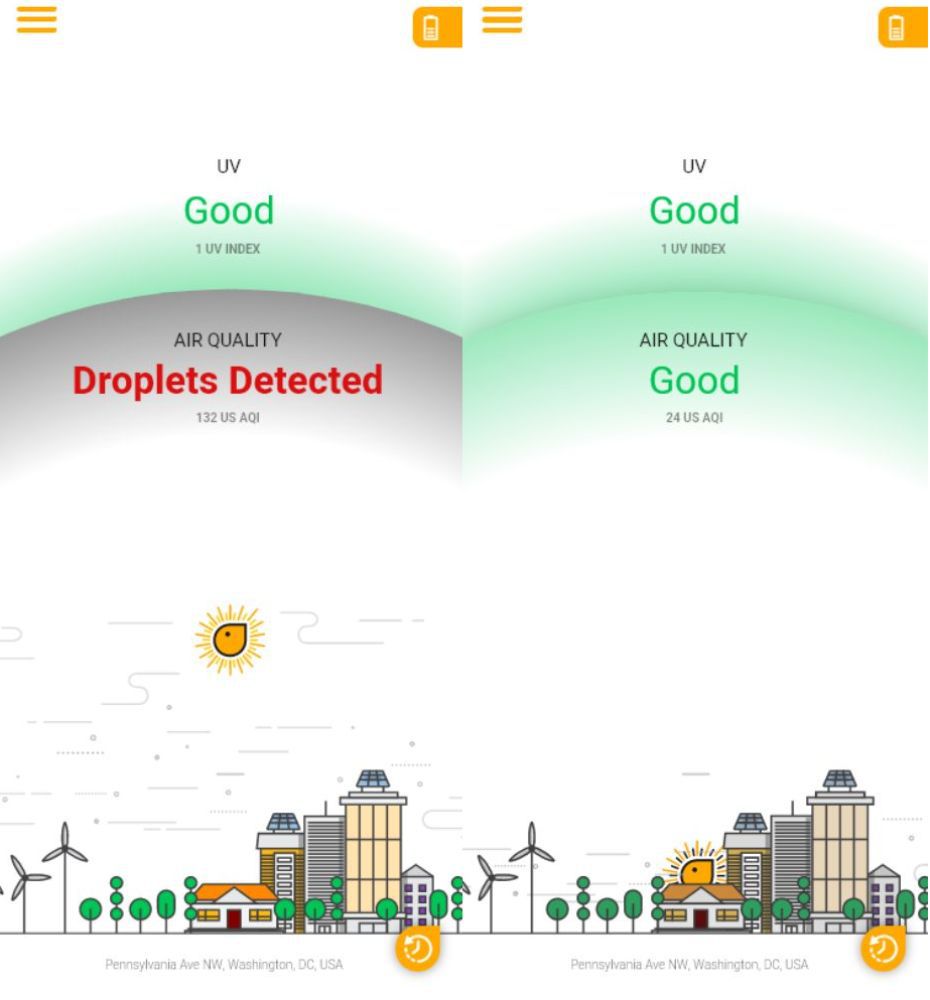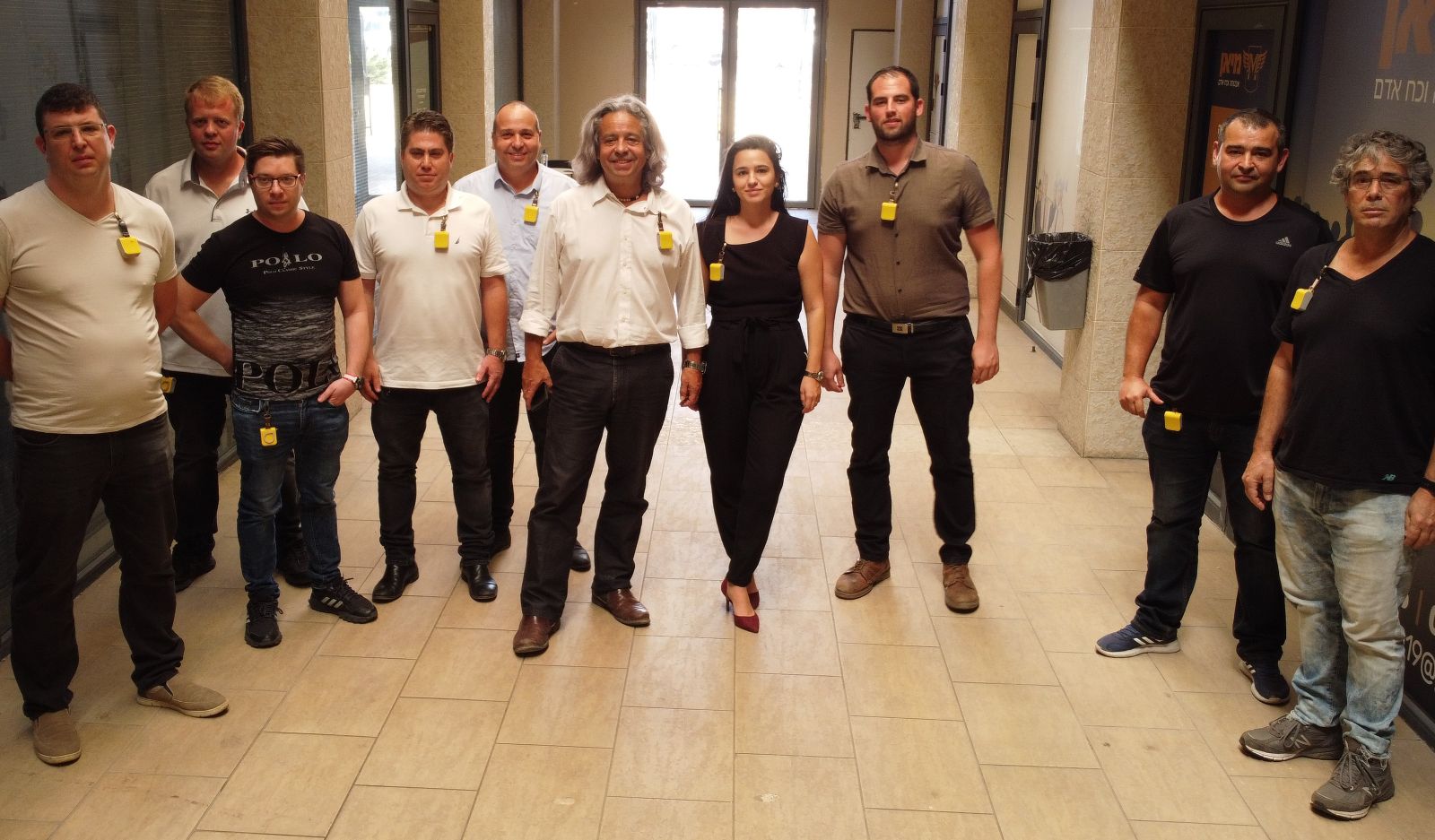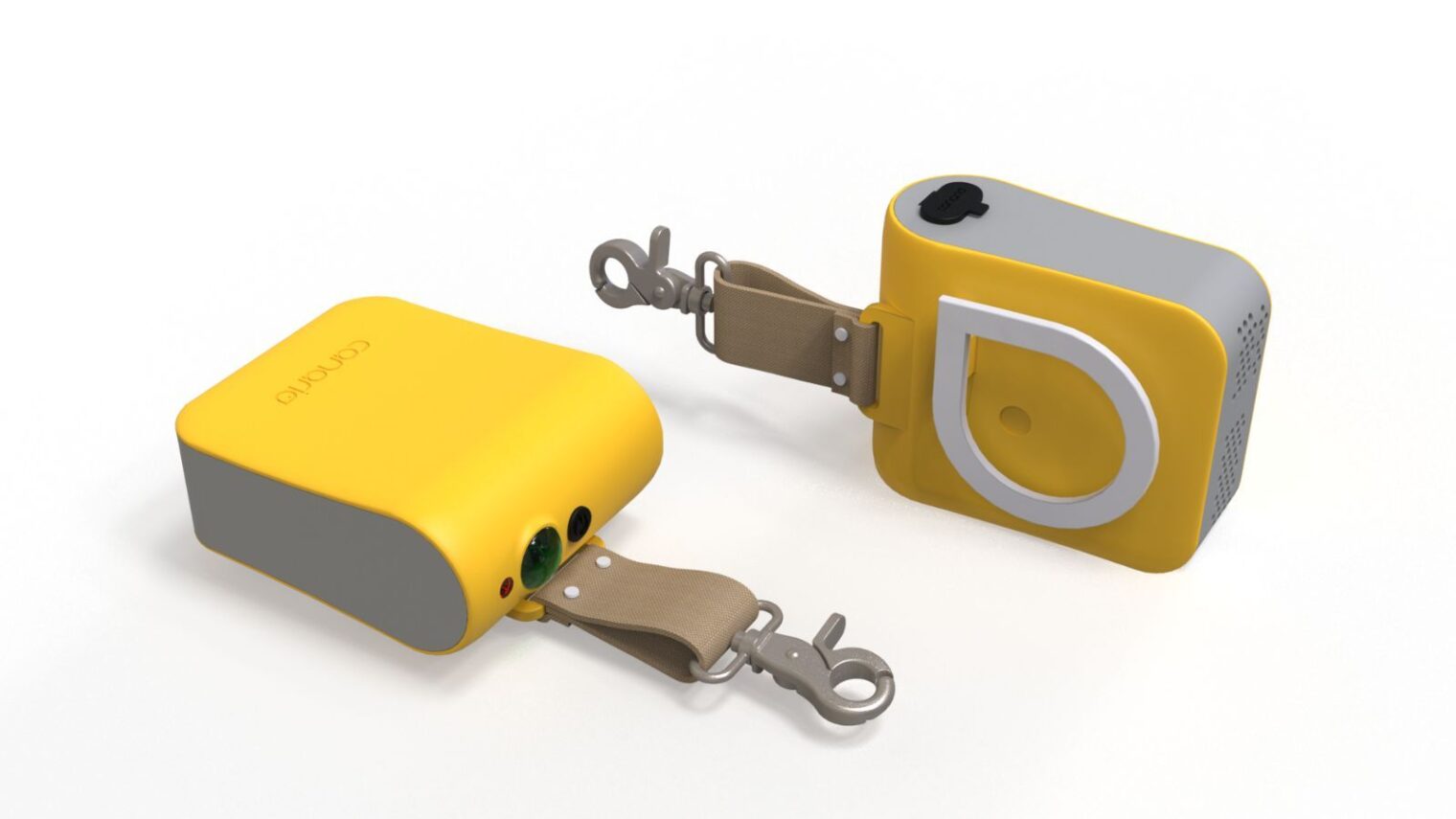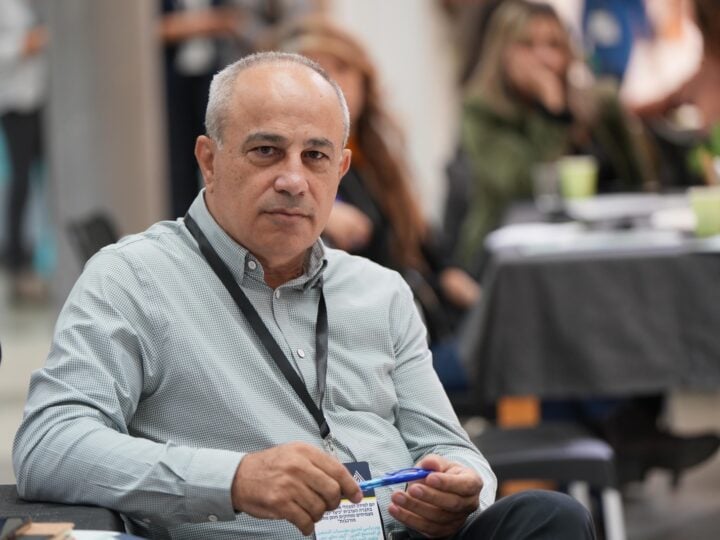What in regular times might seem like the perfect gift for the friend who truly has it all, a personal, portable air-quality monitor might just be what we all need this pandemic season.
Enter Canario, an Israeli startup that recently started marketing a canary-yellow device that detects air pollution, UV radiation and suspicious droplets that may contain viruses such as Covid-19.
“The whole thing began about two years ago and stemmed from the personal need of our R&D manager whose daughter suffers from asthma. He looked for some kind of device that would determine air quality, and since there wasn’t one on the market he sat down and began working on one,” explains Canario CMO Itzik Baabur.
“The device was in fact originally developed to determine air quality, and it monitors air quality according to the Air Quality Index,” he says, referring to the international index used to communicate levels of air pollution.
The device, which can be clipped onto a shirt, belt or bag, lights up when it detects high levels or air pollution or UV radiation within a one-meter radius of the user, while an accompanying phone app vibrates.

“This past year, with the development of corona, we’ve been rethinking and making many attempts to try and locate the droplet sprays that carry the virus,” Baabur tells ISRAEL21c.
“This droplet spray has a behavioral profile in the air, and we learned how to identify this profile.”
Baabur stresses that Canario cannot locate Covid-19 specifically. Rather, it can identify and warn of droplet sprays that may contain viruses, including the coronavirus, and help users decide whether to stay in the area.
“In regular times, the target audience for this device is the population that suffers from respiratory problems,” he says. “Now, with corona, almost every person on the globe wants to avoid droplet sprays.”
Personal pollution and allergen detector
Meanwhile, the company has marketed the device to a few hundred users over the past couple of months. Baabur says that the more people who use it the better the monitoring will become.
“It’s like Waze for air pollution,” he says. “The more devices there will be around the world the better we’ll be able to identify the profiles of air-quality behaviors and draw a global map of air quality accordingly.”

This is set to include identifying allergens such as dust mites, mold, soot and pollen. “A person who’s allergic to cats and has a cat somewhere in his area – the device will know to identify that and warn of it.”
The issue of air quality, Baabur predicts, is going to be at the forefront of our minds in coming years, coronavirus crisis or not.
“The upcoming years are going to be very much focused on the quality of air that we breathe outdoors and in closed spaces.”
He likens it to the emphasis that has been put on water quality in recent years.
“We believe that in the next 10 to 15 years the issue of air will have a very strong turn,” he concludes. “Covid intensified it.”

















